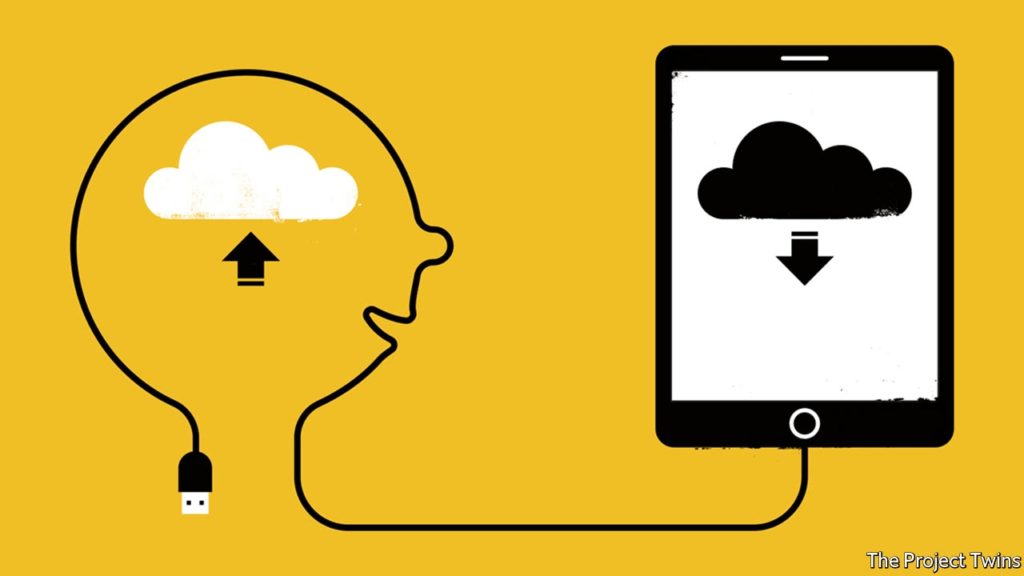AI in Education – Digital Revolution Still Needs Humans

Education has remained the same over the centuries. Formal structures in schools and universities have followed the “sage on a stage” and “assembly line” models. We see industries like transportation, e-commerce, media, consumer electronics, and healthcare being disrupted by Artificial Intelligence (AI). Would Education be the next big opportunity?
Given that education is the foundation that prepares people to pursue advancements in all the other fields, it has the potential to be the most impactful application of AI.
“Education systems will need to evolve for a changed workplace, with policy makers working with education providers to improve basic skills in the STEM, a new emphasis on creativity, as well as on critical and systems thinking. For all, developing agility, resilience, and flexibility will be important at a time when everybody’s job is likely to change to some degree.”
A Future That Works: Automation, Employment, And Productivity, Jan 2017, McKinsey Global Institute
Practical examples of AI
Examples of AI in education that have the potential to help shape the next generation of more personalized learning and responsive teaching.
Pearson in its 2016 report Intelligence Unleashed: An argument for AI in education. “Sadly, many of the best ideas in AIEd currently make it no further than the lab or perhaps a lecture hall.” Some applications of how AI will change education in 2017 are:
- AI for grading students’ written answers
- Bots that answer students’ questions
- Virtual personal assistants that tutor students
- Virtual reality and computer vision for immersive, hands-on learning
- Simulations and gamification with rich learning analytics

While we may not see humanoid robots acting as teachers within the next decade, there are many projects already in the works that use AI to help students and teachers get more out of the educational experience.
CenturyTech reduces teachers’ workload and provides students with an education that is tailored to their needs. School leaders can get real time data on learning and progress at student, class and school level.
MangaHigh allows teachers to personalise maths learning based on adaptive and gamified content to match each student’s performance and effort
Whizz Education claims that just an hour a week spent with their AI-powered tutor over the course of an academic year can accelerate a student’s learning by 18 months ahead of their peers.
ETS has successfully used AI as a replacement for one of the two humans for grading SAT and GRE essays. Teachers use the same software to help their students develop their writing skills independently and receive automated, constructive feedback.
Coursera uses AI to improve its courses and customise support for learners. When large number of students are found to submit the wrong answer, the system alerts the teacher and gives future students a customized message that offers hints to the correct answer
How AI can benefit society
“Automation will create an opportunity for those in work to make use of the innate human skills that machines have the hardest time replicating…For now, the world of work still expects men and women to undertake rote tasks that do not stretch these innate capabilities as far as they could. As machines take on ever more of the predictable activities of the workday, these skills will be at a premium. Automation could make us all more human.”
AI will benefit all the stakeholders of the education ecosystem. Students would be able to learn better with instant feedback and guidance, teachers would get rich learning analytics and insights to personalize instruction, parents would see improved career prospects for their children at a reduced cost, schools would be able to scale high-quality education, and governments would be able to provide affordable education to all.
What if…
What if we could produce the whole human brain, with all its intricate wirings in a computer? What if instead of describing to a computer how to think, we let it think by itself, evolve a ‘mind of its own’? Social and emotional capabilities, providing expertise, coaching and developing others, and creativity have been seen as skills that machines can not yet imitate. The pace at which AI and machine learning are evolving, in the next two decades we will see machines capable of feelings, empathy, morals and consciousness. It is all the more imperative that we solve the diversity issue in tech, especially in AI, so that machines are not learning a biased mental model.
Ways AI will influence Education in the future
AI has the potential to radically change just about everything we take for granted about education. Of the 10 ways that AI can reinvent education, the one I find most exciting is AI-guided training that can ease the transition from high school to college and from college to work. The college selection process may end up a lot like Amazon or Netflix, with a system that recommends the best schools and programs for student interests. AI will be able to recommend jobs and connect skills, learning and work together to support life-long learning.
AI could offer students a way to experiment and learn in a relatively judgment-free environment, especially when AI tutors can offer solutions for improvement. According to a recent EdTech report in The Economist here a typical day at Khan Lab School in Mountain View, California, “Its pupils do not have homework or report cards or spend all day in classrooms. They are not stratified by age; they share common spaces as they pursue individual goals and schedules, using software built by in-house developers to take tests and watch video lessons from the school’s sister organisation, Khan Academy, which makes online tutorials. Half the teachers act like tutors, helping with academic work. The rest mentor pupils in character traits such as curiosity and self-awareness.”
Exciting times ahead!